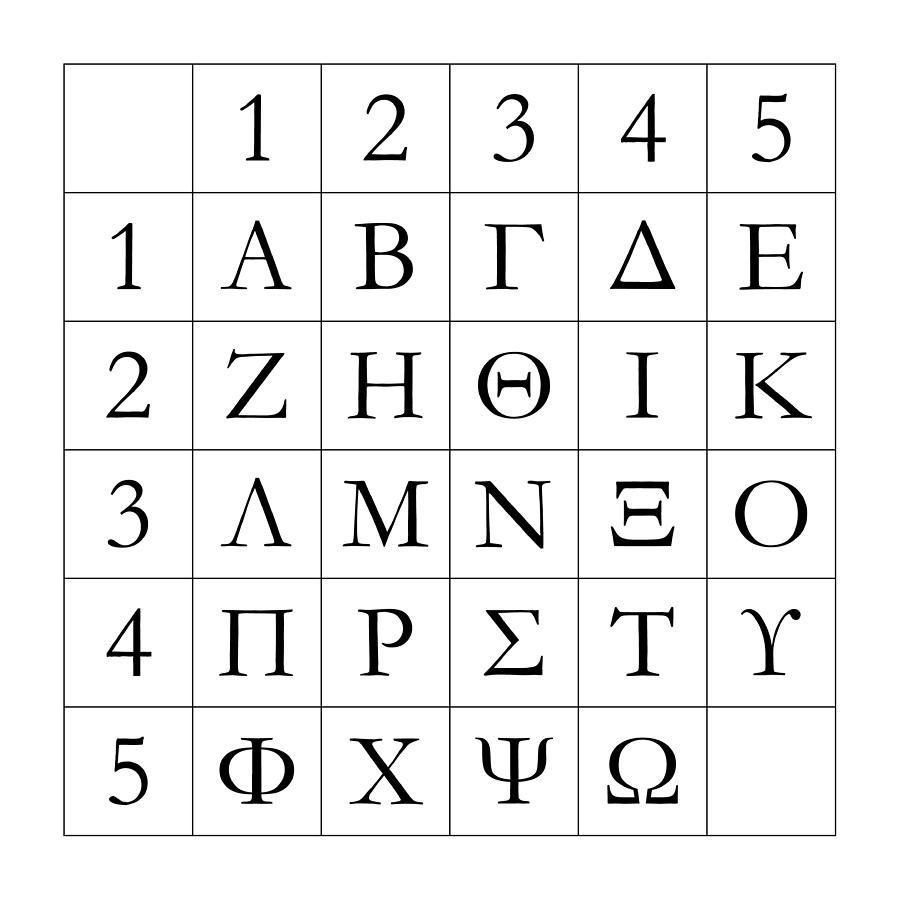


The copy-paste of the page "Polybius Cipher" or any of its results, is allowed (even for commercial purposes) as long as you cite dCode!Įxporting results as a. o NOTE: If another box does not appear, you can also click on the 3 dots on the side of the Caesar cipher box, and choose duplicate.
#POLYBIUS SQUARE ONLINE ANDROID#
Except explicit open source licence (indicated Creative Commons / free), the "Polybius Cipher" algorithm, the applet or snippet (converter, solver, encryption / decryption, encoding / decoding, ciphering / deciphering, breaker, translator), or the "Polybius Cipher" functions (calculate, convert, solve, decrypt / encrypt, decipher / cipher, decode / encode, translate) written in any informatic language (Python, Java, PHP, C#, Javascript, Matlab, etc.) and all data download, script, or API access for "Polybius Cipher" are not public, same for offline use on PC, mobile, tablet, iPhone or Android app! Select Polybius square from the dropdown menu, under Polybius square ciphers. Useful in lots of situations, like tapping a. Also, the KEY must be 5 characters long and not repeat in order for this cipher to work. You can customize the alphabet with a keyword or phrase. Ask a new question Source codeĭCode retains ownership of the "Polybius Cipher" source code. The Polybius Square is a very old technique for converting the letters of the alphabet into 2 digit numbers. The Polybius Square is essentially identical to the simple substitution cipher, except that each plaintext character is enciphered as 2 ciphertext characters. The greek historian Polybius described this method in 150 before JC.


 0 kommentar(er)
0 kommentar(er)
